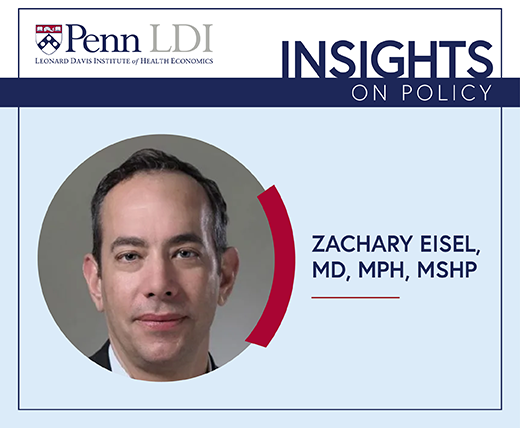
Over 500 U.S. Hospitals Have Stopped Delivering Babies Since 2010
A Crisis in Maternal Care is Unfolding—and it’s Hitting Rural and Urban Communities Alike
Blog Post
The United States experienced its last outbreak of wild type transmission of polio in 1979. However, wild type polioviruses continue to be transmitted, and within the last few years there has been a surge of vaccine-derived polio cases around the world. Virulent, transmissible polioviruses remain a concern, particularly through imported cases from travel.
A recent case of vaccine-derived polio in an unvaccinated adult was reported in a community in New York state that was the epicenter of a large 2018-2019 measles outbreak. Considering that the COVID-19 pandemic caused vaccination coverage to tumble across the board, communities have been playing catch-up for routine vaccines like polio, measles, and shingles while striving to increase acceptance for COVID-19 vaccines. These events highlight the importance of engaging with those who are unvaccinated.
So, what can be done?
When it comes to seeking advice about health and vaccines, patients trust family practice physicians, nurses, pharmacists, and specialists. At a time when parents and adults are drowning in an overabundance of information, trusted providers help separate fact from fiction. Using repeat opportunities and knowing that each vaccine may generate different concerns, providers can engage in personalized conversations with patients so they feel heard. Providers should revisit vaccine conversations at every opportunity.
At the Children’s Hospital of Philadelphia (CHOP), a large pediatric primary care network with over 1 million annualized preventive care visits between 2013-2020, we saw a change in vaccine acceptance over time. For example, we observed this in three vaccines with a complex history—measles, mumps, and rubella (MMR); varicella-zoster; and human papillomavirus (HPV).
In the case of MMR vaccines, parents were searching for a cause for the seeming increase in autism in the 1990s. This led parents to fear the MMR vaccine and more so thimerosal, a mercury-based preservative used at the time in vaccine formulations. This was amid a global movement that highlighted concern about mercury in food, drugs, and the environment.
In 1995, a vaccine for varicella-zoster, more commonly known as chickenpox, was licensed in the U.S. This vaccine initially suffered from the perception that chickenpox is a mild illness that “everyone gets.” This view has shifted over time, and the chickenpox vaccine is part of the routine pediatric vaccination schedule. Notably, these two vaccines—MMR and varicella-zoster—are typically mandated for school entry, which is helpful in getting kids vaccinated. Parents who object to vaccines for their children may not object enough to forgo school.
Lastly, the conversation can be exceptionally difficult about the safe and effective HPV vaccine, which protects against six different kinds of cancer. This is because HPV infections are most commonly, but not always, transmitted sexually. Many parents don’t think that their children (between the ages of 9-11) need to be vaccinated because they are not sexually active. Also, the strength in the recommendation of the vaccine by providers, which is quite important to parents, varies widely.
Vaccine decision-making is complex and behavioral changes take time. New information, a conversation with another parent, or a shared personal experience from a trusted source can influence decision-making. Providers and health care systems, including CHOP, can focus on evidence-based quality-improvement interventions like audit feedback reports, physician standing orders, and additional prompts in the electronic health record to remind clinicians to order vaccines. For the HPV vaccine, conversations with parents can also begin earlier at age nine as opposed to age 11. Repeat opportunities to initiate and continue vaccine conversations may give parents the space they need to consider or reconsider vaccination.
Doctors and patients alike are pressured to cover many issues during a limited patient visit. Institutions and policymakers can support providers by creating the space to have opportunities for vaccine conversations. On December 2, 2021, the federal government required state Medicaid programs to cover COVID-19 counseling visits for children; these visits can also include conversations about routine vaccines. This policy change offers additional opportunities to talk to parents, which should have been extended to adults as well.
The nature of the provider-patient relationship (good, neutral, or nonexistent) is critical to supporting patient decision-making. However, providers often lack the training to communicate with hesitant individuals about vaccine conversations, particularly compressed into brief wellness or sick visits where many issues and questions need to be covered. For many years, providers have operated on an information-deficit model, counseling hesitant individuals by providing facts and education about vaccines and vaccination, potentially missing the opportunity to address specific underlying concerns (e.g., inequitable access to services) that may also affect medical decisions.
To increase trust and vaccine uptake, other strategies like invitational rhetoric can provide a pathway beyond traditional persuasive approaches (e.g., fear-based messaging about the risks of not vaccinating). Other traditional techniques used in the past include using a presumptive tone which frames vaccinating as a default, and motivational interviewing to resolve ambivalence. However, these techniques may be limited in honoring opposing viewpoints that help improve trust in a relationship. Empathetic communication is critical in vaccine conversations. The key is to be authentic, curious, and respectful, and to listen and guide the conversation with compassion while leaving the door open for future discussion.
Individuals who are hesitant to vaccinate are often undecided or uncertain. Some may choose to vaccinate despite having more concerns. Others delay—or accept—all vaccinations. Those with minor concerns may not know how to get their questions answered or whom to trust. It can be difficult for an individual to decide what to do, particularly when it comes to making decisions for children. Respecting these decisions, even if it is not to vaccinate for a given vaccine, may support a future decision to vaccinate.
Vaccine hesitancy is not new. Pockets of people have railed against vaccines for centuries, long before COVID-19 came along. Providers and other trusted sources can respectfully explore a patient’s doubts and interest in vaccination using a guided approach, reflecting on all perspectives. Providers should continue to offer vaccines that have been refused, recognizing that over time patients may change their minds.



A Crisis in Maternal Care is Unfolding—and it’s Hitting Rural and Urban Communities Alike

Stable Payments Improved Margins But Not Liquidity, New LDI Analysis Finds

LDI Senior Fellow Cited for “Significant Contributions” in Research

Outdated Laws Target Black and Queer Lives in Over 30 States, Fueling a Deadly Disease

Selected for Current and Future Research in the Science of Amputee Care

Research Memo: Delivered to House Speaker Mike Johnson and Majority Leader John Thune